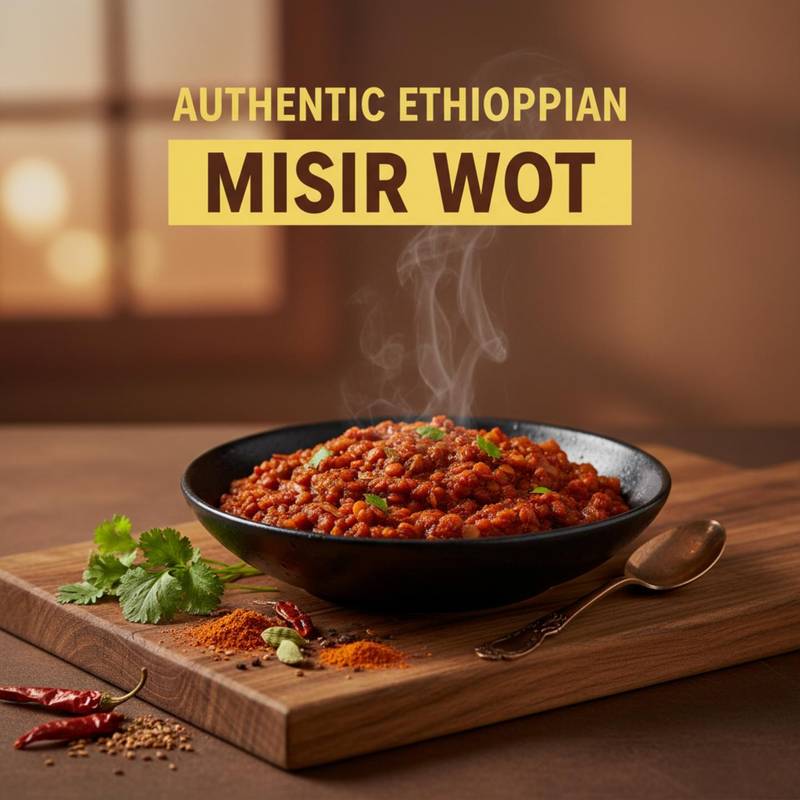A rich, spicy, and naturally vegan Ethiopian red lentil stew, slow-simmered with berbere spice, onions, garlic, and ginger until thick and flavorful. Perfect served with injera.

Authentic Ethiopian Misir Wot
A rich, spicy, and naturally vegan Ethiopian red lentil stew, slow-simmered with berbere spice, onions, garlic, and ginger until thick and flavorful. Perfect served with injera.
Ingredients
- 1 cup red lentils rinsed well
- 1 large red onion finely chopped
- 3 cloves garlic minced
- 1 inch fresh ginger grated
- 1/4 cup vegetable oil or niter kibbeh
- 1/2 cup berbere spice blend
- 1 tablespoon tomato paste optional
- 4 cups vegetable broth or water
- 1/2 teaspoon salt or to taste
Instructions
- 1. Rinse red lentils thoroughly under cold water until the water runs clear. Set aside to drain.
- 2. In a large pot or Dutch oven, heat the oil (or niter kibbeh) over medium heat. Add the finely chopped red onion and sauté until very soft and translucent, about 8-10 minutes, stirring occasionally.
- 3. Add the minced garlic and grated ginger to the pot. Cook for another 2-3 minutes until fragrant, being careful not to burn the garlic.
- 4. Stir in the berbere spice blend and tomato paste (if using). Cook for 2-3 minutes, stirring constantly, to toast the spices and deepen their flavor.
- 5. Add the rinsed and drained red lentils to the pot, stirring to coat them thoroughly with the spice mixture.
- 6. Pour in the vegetable broth or water. Bring the mixture to a boil, then reduce the heat to low, cover the pot, and simmer for 30-40 minutes, or until the lentils are tender and the stew has thickened to a rich consistency. Stir occasionally to prevent sticking.
- 7. Season with salt to taste. Adjust spice level if desired.
- 8. Serve the Misir Wot hot with traditional injera, rice, or your favorite flatbread.
Notes
For a richer flavor, use niter kibbeh (Ethiopian spiced clarified butter) instead of vegetable oil. If you prefer a milder stew, reduce the amount of berbere spice. Misir Wot thickens as it cools; you can add a little water or broth when reheating if needed. Serve traditionally with injera, or with rice or flatbread.

